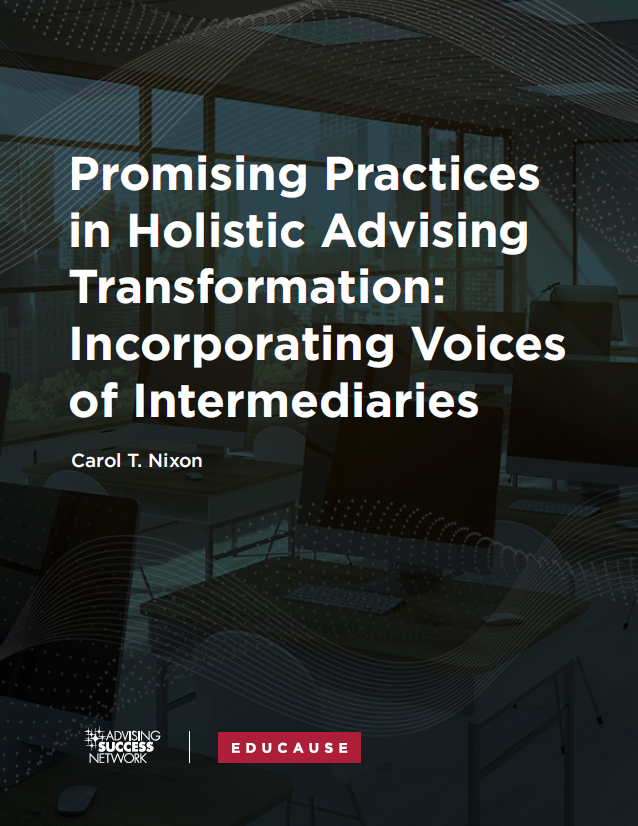
NEW from EDUCAUSE: Promising Practices in Holistic Advising Transformation: Incorporating Voices of Intermediaries
Over the past decade, intermediary organizations – “an organization or body that acts as an agent or broker in any aspect of the innovation process between two or more parties.”[i] – have increasingly engaged with institutions of higher education to provide resources, networking, and guidance to help improve student outcomes, particularly for students of color and low-income students. National foundations are increasingly providing funding to intermediaries and supporting the development of coalitions and networks to support institutional transformation.[i]
To date, the field has relied primarily on institutional self-reports to examine best practices in transformation. This new report explores intermediary staff perspectives of successful advising transformation, and examines intermediary organizations’ pivotal capacity-building role in holistic advising transformation efforts.
- What institutional factors are associated with readiness and successful advising redesign?
- What transformational practices do intermediaries see as supportive of successful advising transformation? What practices are seen as barriers?
- How does technology contribute to successful student advising overall? What challenges does technology present?
- Does institutions’ use of advising technologies change over time?
[i] Howells, J. (2006). “Intermediation and the role of intermediaries in innovation.” Research policy, 35(5), 715–728.
[i] Haddad, N. (2021). “Philanthropic Foundations and Higher Education: The Politics of Intermediary Organizations.” The Journal of Higher Education, 92(6), 897–926.

